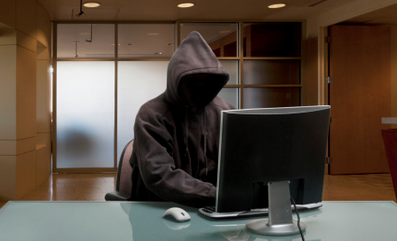
Let’s face it: The threat of being hacked is a part of our digital lifestyle. It seems like every week there is a new story about a different company getting compromised and everyone from Russian hackers to third-party applications are to blame.
Personal images, financial information, and anything else you put online is at risk and there is always someone out there who wants it. Fortunately, it is entirely possible to protect yourself.
But doing it is not easy.
Pull the Plug
There is a vibrant community of “unpluggers” who are fed up with technology for one reason or another. The threat of getting hacked is only one reason people are pulling the plug and there are plenty of other motives for ditching technology. Whether it’s because Instagram almost ruined their life or because they want to sleep better at night; many people are choosing to unplug from their digital life to improve their real one.
And it’s working.
A Twitter search for #unplug reveals many success stories where people proclaim how disconnecting from technology for a while has been a positive influence in their life. And it doesn’t have to be a long period of time either. Many of these people are finding great benefits by unplugging for a just few hours throughout the day.
Taking yourself off the grid forever is the only way to protect yourself from getting hacked for one simple reason: There is no such thing as online privacy. You may think deleting emails, changing passwords, or not using a cloud service keeps you safe, but, in reality, everything you have ever done online is stored somewhere.
Before you call me crazy and tell me to put on my tinfoil hat, consider the following:
- The NSA collects nearly everything a user does on the Internet
- NSA analysts require no prior authorization for searches
- The NSA sweeps up emails, social media activity, and browsing history
Whether you agree with the NSA’s tactics or not is irrelevant. If the government has access to your computer, it means someone else does too – especially hackers. So unless you’re willing to avoid the Internet at all costs, you have to sacrifice your privacy for the sake of convenience.
But unplugging is hard – really hard. It’s also unrealistic to completely avoid technology.
We live in an era where nearly everything we do is somehow tied to the Internet and many people don’t have the choice of unplugging. For those of us who rely on technology to get us through the day we need another option — something more reasonable.
And that option is to realize nothing can prevent a hack.
Let’s Be Realistic
Recent events like the celebrity iCloud hack and “The Snappening” have confirmed privacy does not exist in the digital age. Steve Jenkins, an Internet entrepreneur, brilliantly summed up this idea in a recent blog post:
“You need to accept the reality that any photo or video…
on any type of device…
that has the ability to connect to any type of cellular, Wi-Fi, or wired network…
or than can plug in with a cable to any type of device on any type of network…
is being stored somewhere, accessible to others, and could be made public.”
Compromising photos and videos are not the only things you need to worry about; anything can get hacked. No network is completely secure and any device with Internet access is at risk. For this reason, the only realistic thing you can do to protect yourself is to be careful.
This means you need to use technology wisely, not unplug from it.
If you don’t want your financial information stolen, don’t visit sketchy websites and make sure the one you’re shopping on is secure like Newegg’s. If you don’t want people to see you naked, don’t take nude pictures of yourself and upload them to your cloud account. If you don’t want the NSA to come knocking on your door, don’t send threatening emails to President Obama or anyone else for that matter.
Doing these things doesn’t mean you’re paranoid; it means you’re realistic.
Avoiding technology is nearly impossible and people rarely unplug from it. And with millions of records stolen every year, keeping yourself safe should be a top priority. Until someone figures out a way to create an anonymous Internet, this means being smart about the information you share online.
Getting hacked can be your worst nightmare, but avoiding it can be a dream come true. Whether you choose to unplug or be more diligent to protect yourself is up to you. But whatever you decide, there is one thing that will remain the same: Hacking is not going away any time soon.
Practical Tips for Protecting Your Online Privacy
If you decide to stay connected to technology, what better person to give you advice on staying safe than an ex-FBI agent? Here are five suggestions from Mary Galligan, an ex-member of the FBI’s cyber and special operations team:
- Change your passwords once a month.
- Give the wrong contact information at checkout.
- Need photo ID? Don’t show your driver’s license.
- No banking apps.
- Keep one email account for junk mail only.
What do you think? Is it possible to unplug from the Internet? Do you think your information is safe online? What else can you do to avoid getting hacked? Let us know in the comments below!
